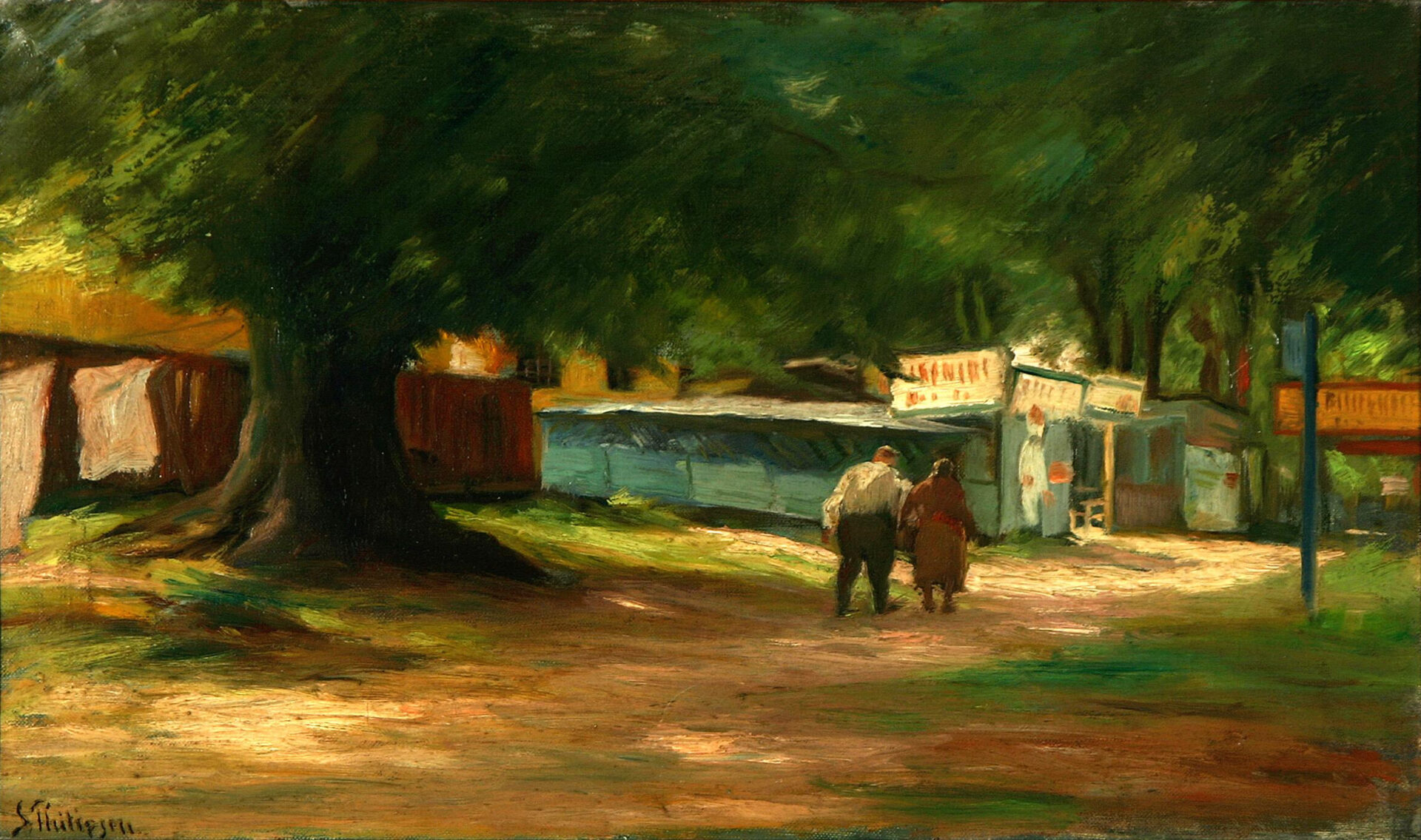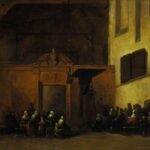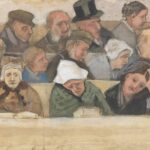“It occurred to me that there was no difference between men, in intelligence or race, so profound as the difference between the sick and the well.” – from The Great Gatsby, by F. Scott Fitzgerald.
. . .The nearest friends can go With anyone to death, comes so far short They might as well not try to go at all. No, from the time when one is sick to death, One is alone, and he dies more alone. Friends make pretense of following to the grave, But before one is in it, their minds are turned And making the best of their way back to life And living people, and things they understand. From “Home Burial,” by Robert Frost
Cast me not off in the time of old age; forsake me not when my strength faileth. Psalm 71:9
W backed his truck into the garage and unloaded his tools for good. After retirement from a chemical and materials manufacturing plant, W. plied a craftsman’s trade for nearly twenty years. The bulk of his efforts went into keeping up remodels and repairs of rental properties owned by several landlords in his hometown. He also played leading roles in residential projects. And his part in any construction job at our church proved significant. Our pastor, himself a noteworthy craftsman, often turns to a few men in our church for counsel and labor with such efforts. W. is among those men. From plumbing to framing to drywall to tile to carpet to electric, W. worked his work and loved his work and earned high regard for his work.
However, W. could not stop or repair the atrophy seizing the brain of D., his wife. Dementia is working its work through her. D.’s cerebral cortex has receded like a perpetual low tide, and the watermark level at which she enjoyed independence, where she played piano for our church and tended to her home and could move about on her own accord, would not be reached again. Her mind is occupied by specters that hobble over desolate terrain and mark their dominion in a tuneless refrain. D. cannot be left alone long enough for W. to continue his trade. W.’s tools are not stored away permanently or sold but, rather, left near his truck for emergency jobs; but, even then, one of their children must stop in to keep watch over D. should W. be needed on a work site.
At the time of this writing, W. and D., with W. staying at D.’s side, remain faithful attenders of our church’s worship services and Bible studies. How long will this hold? The answer is unknown, but I am watching. When it comes to the couple being absent from sabbath day or midweek assemblies, the church’s streaming service will let them see and hear Pastor’s sermons. And Pastor, doubtless, will visit the couple, as will Jackie and Frances, for all three are good at going to the homes, the highways, the hedges, and the hollers to visit with widows, widowers, the poor, and the sick so that such vital members are not forgotten and true religion is not neglected.
In like manner, I should, then, also visit W. and D. Currently, I don’t practice hospitality in that way. But W. has indelibly etched on my mind. Not only by his work ethic but by his ethic. He is not “tossed to and fro, and carried about with every wind of doctrine,” and he can be counted on to “speak the truth in love.” Prior to D.’s descent, W. seemed to be a man committed to his wife and she to him, married now almost fifty-five years. By observing the way W. tends to D. in her diminished and diminishing state, I witness a hard living out of the Biblical charge, “Husbands, love your wives.” The passage in which the charge is found also says:
Husbands, love your wives, even as Christ loved the church and gave himself for it;
So ought men to love their wives as their own bodies. He that loveth his wife loveth himself (Ephesians 5:25, 29).
Just as Ulyssess, in Dante’s Inferno and in Tennyson’s “Ulysses,” W. is an aged man with an aged wife. Yet, unlike Ulysses, W. has not waved off his aging wife. He has not forsaken her so he can continue seeking glory and adventure, even the beneficial adventure of building and repairing people’s homes, for which he is known.
But I do not want to wander into Romanticism, so let me be clear. W.’s service to D. is no easy task, and the task will become more difficult, and rewards for his efforts will be postponed. For one thing, a young couple tends to have the benefit of physical attraction between them as a motivator for service and honor. Jayber, from Wendell Berry’s novel Jayber Crow, intimates this truth while describing the congregation at his own church: “the young husbands and wives…sat thigh to thigh, full of yearning and joy.” When the allure of your spouse’s body works like strong drink, serving and paying honor might be very soon rewarded. Old age, on the other hand, especially when health is eroded, usually wants for passion, and the service and honor given, then, must await those rewards that exist above the sun and beyond time.
In addition, to be known is one of the highest rewards humans seek. Who hasn’t been given a reward or gift which exposes the giver’s lack of knowledge of who you are? The reaction to such things usually entails disappointment, if not anger, at being unknown. A long-standing marriage provides the rich joy of being known. As dementia atrophies the brain, those closest to the one with the impairment will become unknown. Recognizable, perhaps. But unknown. Spouses, children, grandkids, best friends — their names, their beings, all diminished, if not vanished, from the mind dried out by dementia. I was an adult when I watched my grandmom be led to her chair, where she, in previous years, could be found crocheting or working crossword puzzles or carrying on a conversation with any of us in the room; only this time, my mom held her hand and told her that the row of young people across from her in her own living room were her grandchildren, and to which one of her own kids each grandchild belonged. My grandmom’s expression remained unchanged. She no longer knew us. But it struck me more that she didn’t know her own daughters, her own sons, or her husband: those whom she had born and raised, and the man with whom she had accomplished such a work. My wife’s grandmom endured the same burden twice; first, by taking care of her mother, then, without time in between, tending to her husband, both swept under dementia’s current. She buried two people she knew and loved. And how much were they able to know and love her in return?
Thus, the very labor W. performs for D., as D. is reduced by dementia, matches what Bonhoeffer calls “spiritual love.” “Human love,” Bonhoeffer says, “breeds hothouse flowers; spiritual love creates the fruits that grow healthily in accord with God’s good will in the rain and storm and sunshine of God’s outdoors.” W. is enacting spiritual love. Yet his labor will go almost unseen by the very one he serves. And if unseen, also unthanked. For who can offer up the reward of thanks when they cannot remember for what and to whom they are to be thankful? In W.’s spiritual love, we glimpse something of the character of God’s relationship to man, of the Creator’s selfless love for those who are quick to forget and slow to give thanks.
Image credit: “Et ældre par går tur på Bakken” by Sally Philipsen via Wikimedia






2 comments
Wayne Wyatt. (The W)
Mark I agree with your beautiful article, if I could I would change the D to a V. Virginia, my wife.
Dementia is devastating, everyone with an elderly loved one should have to read your article. The disease that she had affected everyone that she knew.
Advise, tell your spouse that you love and appreciate them, give them a gentile kiss on the forehead before you settle down for the night.
The day will come when one of you will not be able to do that. 🙏
Great work Mark, I am proud of you
Martin
Indeed, give thanks. Married more than 1/4 century, I find that gratitude often reinvigorates my love for my wife, fortunately still enjoying good health.
As for Tennyson, he took liberties, and you rightly label him a Romantic. Homer portrayed Odysseus as exiled by angry Poseidon, not an egotist seeking adventure. He was probably about 40 when he returned, not aged even by his era’s standards. And recall that his wife (probably younger than 40) was besieged by *young* suitors.
Comments are closed.